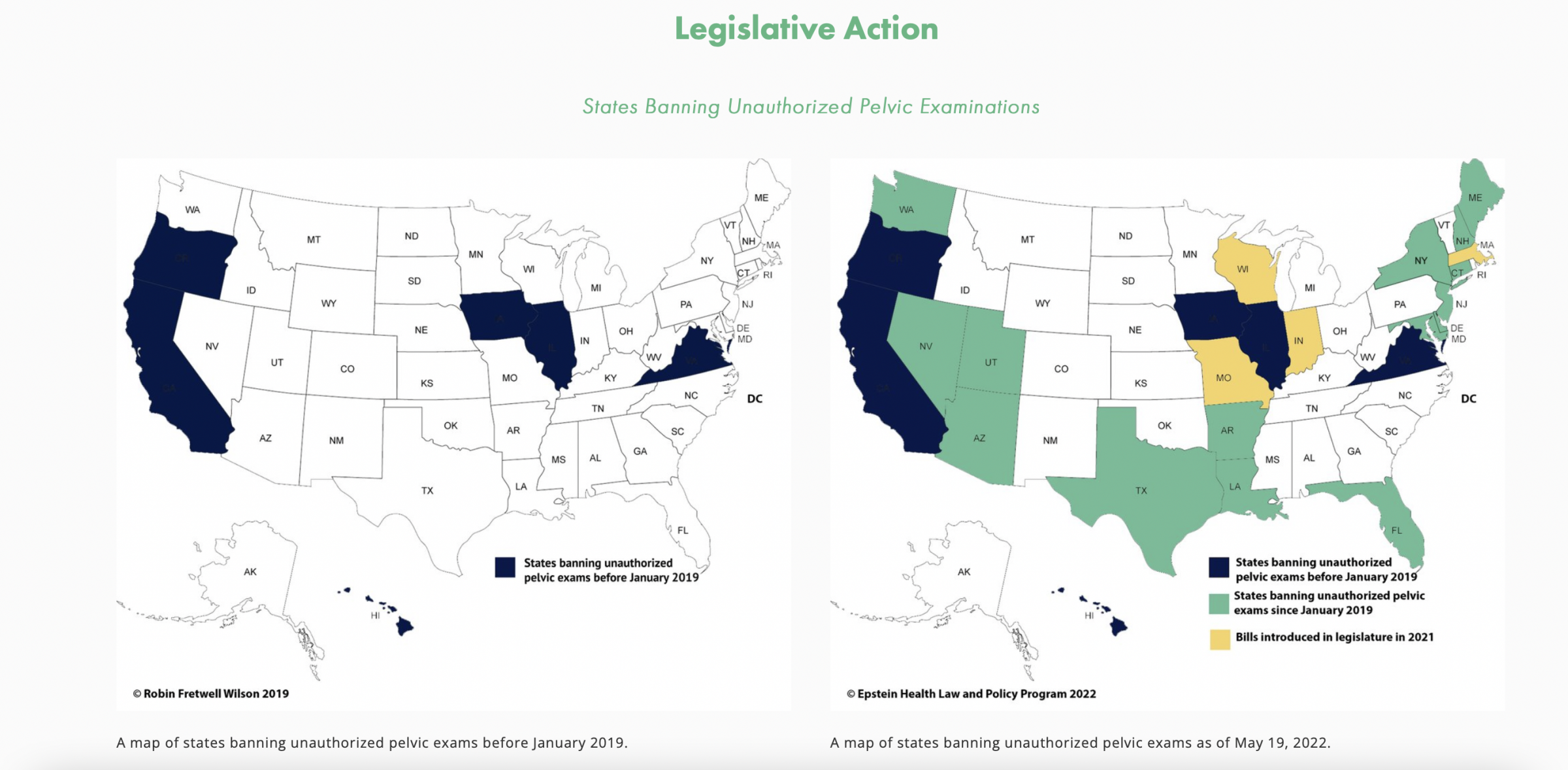In Tennessee, medical professionals and medical students can —without any kind of permission — stick their fingers and instruments inside a woman’s vagina and rectum while she is under anesthesia.
Under normal conditions, these are called pelvic exams. In them, doctors, nurses, or medical students examine a woman’s vulva and internal reproductive organs like the vagina, cervix, ovaries, fallopian tubes, and uterus. The exams are considered routine parts of wellness checks and Planned Parenthood suggests them for those turning 21.
However, done under anesthesia and without permission, the exams have been labeled nonconsensual pelvic exams. The use of such exams has been normal and widespread for decades. However, critics of them say they strip “the rights of patients to decide who touches their bodies” and are more for the benefit of medical students than of the unconscious patient.
In recent years, medical students have begun to publicly decry the practice, saying they’ve done it shamefully and only at the behest of their instructors. A June study published in the Journal of Surgical Education found that of 305 medical students surveyed, 67 percent said they “never or rarely witnessed an explicit explanation that a medical student may perform a pelvic [examination under anesthesia – EUA].”
”…students wanted to uphold patient autonomy but felt they did not have the personal autonomy to object to performing pelvic EUAs that they believed were unconsented,” reads an abstract from the paper. “They faced significant emotional distress when consent processes were at odds with their personal ethos and professional ethical norms. Students favored more standardized and explicit patient consent processes for educational pelvic EUAs.”
Now, an increasing chorus of states are passing legislation against nonconsensual pelvic exams. As of May, 28 states — including Tennessee — still allow it by law.
Before 2019, only six states banned the exams, according to data from the Epstein Health Law and Policy Program at the University of Illinois. After 2019, 16 more states banned the practice. In 2021, bills to outlaw the exams were before legislators in four states.

“Yet, the practice persists because the controversy it periodically sparks dies out eventually,” reads a statement from the Epstein policy website. “And, like clockwork, attending physicians and medical educators resume teaching their trainees through the bodies of unconscious/anesthetized patients. This, in turn, strips the rights of patients to decide who touches their bodies.”
This, in turn, strips the rights of patients to decide who touches their bodies.
Epstein Health Law and Policy Program
A search of the Tennessee General Assembly bill archive shows no piece of legislation ever introduced here to ban such exams.
Memphis-based University of Tennessee Health Science Center is not waiting for state lawmakers to act on the matter. In March, the school’s College of Medicine enacted a new policy that says “the listed attending [physician] will ensure that adequate consent is obtained for an exam under anesthesia.” Further, students in an operating room can decline to do such an examination “without repercussion, if consent is not documented or is unclear.”
“Learners in the operating room should only perform an exam under anesthesia for teaching purposes when it is explicitly consented to, related to the planned procedure, performed by a learner who is recognized by the patient as part of their care team, and done under direct supervision by the educator,” reads the policy.
This new policy was created after an opinion from the American College of Obstetricians and Gynecologists in 2011 that said pelvic examinations “on an anesthetized woman that offer her no personal benefit and are performed solely for teaching purposes should be performed only with her specific informed consent obtained before her surgery.”
A 2019 statement from the Association of Professors of Gynecology and Obstetrics concurred saying the exams should only be done when it is “explicitly consented to, related to the planned procedure, performed by a student who is recognized by the patient as a part of their care team and done under direct supervision by the educator.”
A 2021 post on the Tennessee subreddit urged action on the matter from a user called u/sandoreucalyptus who called it “an urgent and common problem.”
Under current [Tennessee] laws, someone can visit the doctor for an unrelated medical procedure and receive an invasive rectal or pelvic exam without consent.
Reddit user u/sandoreucalyptus
“[Tennessee] state laws allow healthcare providers and medical students to perform intrusive pelvic or rectal exams on unconscious patients, which violates all established medical ethics guidelines and can be considered assault,” the user said. “Under current [Tennessee] laws, someone can visit the doctor for an unrelated medical procedure and receive an invasive rectal or pelvic exam without consent.”
